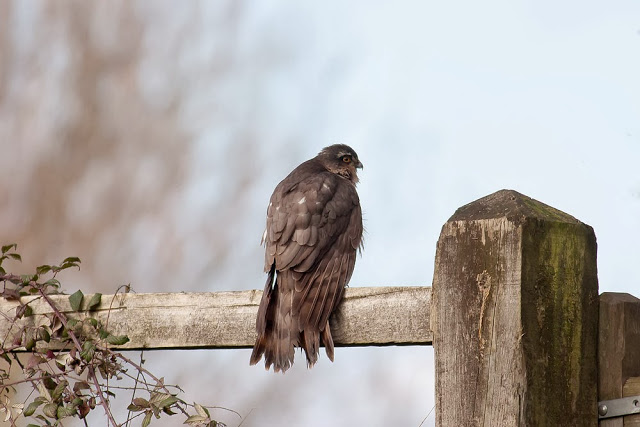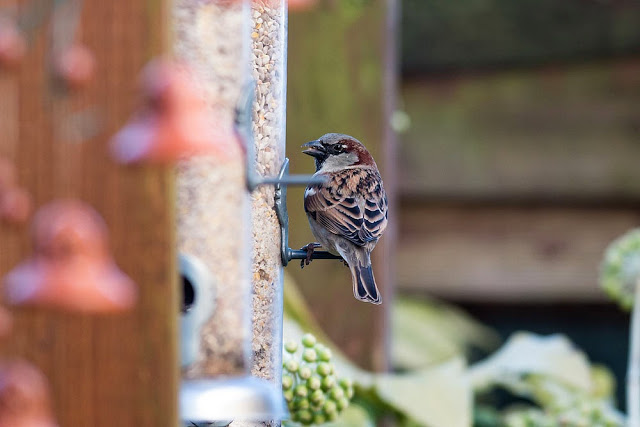Feeding Wild Birds in Your Garden
Feeding Wild Birds in Your Garden is often one of the first steps many people take into wildlife watching. And at first glance it is an easy step to take. It does good, and brings wildlife to you. But the more you look at things the more you begin to question what should you be doing and are you doing the best for the birds?
Feeding Wild Birds in Your Garden
Should you feed all year round? What food should you be using? Do you need to give them water? Hopefully I’ll be able to answer a few of those questions, but do please remember I am UK based so a lot will vary where you are (especially with the types of food/feeder).
The first question you should really consider is what times through the year will you be feeding the birds. I can hear you all saying now “well why would we not feed all year?” and it is a good question, but can you really commit to stock the same levels day after day? And can you be sure you will be there each day to put food out? We all lead busy lives and I’m sure the last thing we would want to do is leave the birds we have cared for in a position where they struggle to find food.
When to Feed
Winter is obviously the most important time to help birds out. It’s at this time of year when food can be thin on the ground (especially if there is snow). And it is now that the birds need our help most. So if you feel you cannot commit to year round feeding then Winter is the time you should do your best to keep feeding wild birds in your garden.

Spring and autumn can be tricky for some as usually food is not so hard to come by but helping the birds now will give them a good chance while migrating or to prepare to raise their young (spring) or to bulk up during migration or ready for overwintering (Autumn). The trickiest time for me is summer, I often wonder if feeding the birds through their breeding time really helps them, or does it just create a dependency on my food, the last thing I would want is to create a group of birds who could not survive without me, but also what should I be feeding are there foods that are better suited to helping adult birds feed their young? and it is not just me who is unsure there are a few opposing arguments, these links may help you make your decision:
http://news.bbc.co.uk/earth/hi/earth_news/newsid_9358000/9358302.stm
http://www.bbc.co.uk/blogs/natureuk/2011/01/should-we-stop-feeding-birds-d.shtml
http://www.birds.cornell.edu/AllAboutBirds/faq/master_folder/bird_feeding
http://www.rspb.org.uk/advice/helpingbirds/feeding/whentofeed.aspx
What Should I Feed?
Your food type should vary with the seasons in order to really help the birds.
In Winter and Autumn birds will require high energy high fat foods (there are special pellets and fat balls etc that are ideal for this, just make sure of two things, firstly that they are good quality (some fat balls don’t contain enough nutrients) and secondly never use the plastic holders they may come in they have been proven to damage birds feet. They also require regular feeds (morning and afternoon) and will quickly become accustomed to when you will feed so try and stay on a regular routine.

Summer and Spring feeding is tricky. The birds require high protein foods and you really need to be careful what you feed. Things like bread, peanuts and fats can be harmful to young birds so should be avoided. Food also has a tendency to spoil quickly, so make sure you clean up regularly.
In summer you really need to look out for poor periods of weather, as this may affect wild birds natural food sources and this may be a time when supplementing their food could really help. Often over looked but birds need water as much as any other animal! So you should try to make sure you keep plenty of CLEAN water ready for the birds all through the year. Top up and clean out regularly to really give the birds the best you can.
What Types of Feeder should I use?
There are so many types of feeder it is incredible what you can get. I personally have a few. Some are for style, others substance, but you will need to know the types of food you want to feed in order to know which types of feeder. Niger seed, for example, will need a specialist feeder or the seeds will run out. Fat ball holders are great to use to avoid the horrible mesh they often come in. Some can be attached to windows for close feeding; others will stand alone in the garden. There are a lot that claim to stop squirrels from feeding, although many will just not work for this. The type of feeder you choose is very personal, but look around the web or pet shops, or better still visit a reserve that has a shop and help support their work.
There are alternatives, you can make your own bird feeders (simple bottles with holes etc.), fat balls, and feeders with a little work. And this can lower your feeding costs a little. But seek proper advice to make sure what you are feeding will not harm the birds.
A great resource of this type of thing can be found Pinterest, I have a few boards that might help – feel free to follow my boards.
What Birds Will Come in?

Cleaning up.
Don’t forget to clean your feeders! Especially in the summer months, as they can often spread diseases or be the source of harmful bacteria conjunctivitis is quite a problem for birds. So keeping things clean really is vital. The reality is you really ought to clean your feeders each day in order to help keep these things at bay.
Feeding birds in your garden can be a really rewarding job. It can take effort; is a long term commitment; and can take a while for the numbers to build up. But when you have good numbers coming in there is little better than sitting watching them enjoy your meals. And you never know you may even end up with one or two birds who will feed from your hand, a trust that has built that strongly is a great bond with a wild animal.
Thank You
I hope this post has gone some way to aiding you to decide you are going to feed the birds. And help a little in helping the wild birds in your garden. I’d love to hear your thoughts on this.

Please feel free to leave me a comment. I really appreciate the interaction and will reply as soon as I can.
Did you enjoy Feeding Wild Birds in Your Garden? Or find it useful? Then please consider sharing via the links below.







3 Comments
Lauren
Some really great tips, so many things that I never thought about. When we move and have a bigger garden I will definitely be following your advice #OutdoorBloggers
AshleyBeolens
Glad it is of some use 🙂
Ethan.n.Evelyn
My kids loves bird watching when we go walking. It is so nice to see Robins when fly by. That Sparrowhawk look stunning! We have some fly around over at my boy's school area too, but can never get close enough to it. A very interesting read. 🙂 #OutdoorBloggers